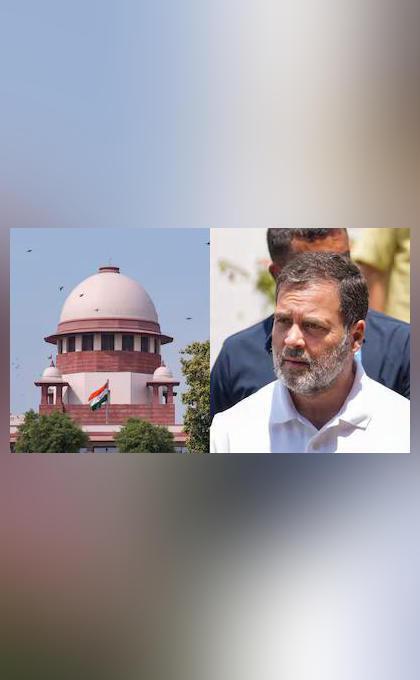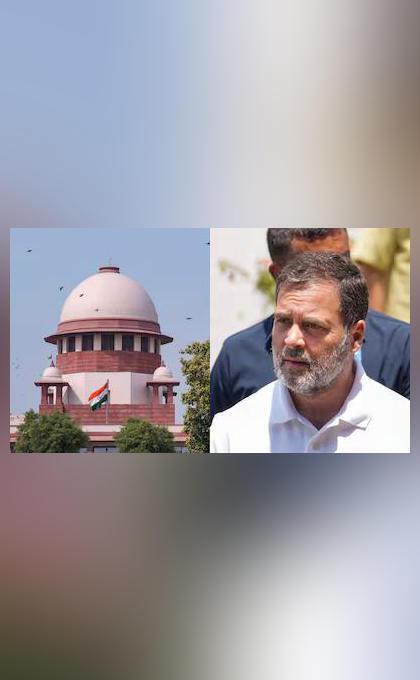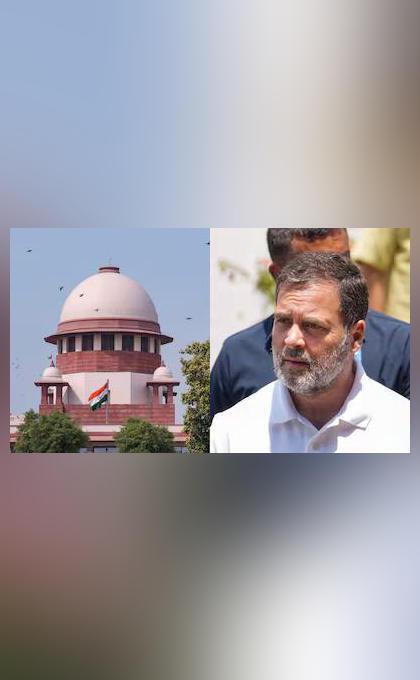
Why Ask on Social Media & Not in Parliament: SC to Rahul on ‘Land Grab’ Claim
The Supreme Court of India has recently rebuked Congress leader Rahul Gandhi over his claim that China had grabbed 2,000 square kilometers of Indian land. The court’s rebuke came while staying a defamation case against Rahul for his remarks about the Indian Army. The Supreme Court’s scathing remarks have raised important questions about the role of social media in political discourse and the responsibility of leaders to verify information before sharing it with the public.
Rahul Gandhi’s claim about China grabbing Indian land was made during a rally in Wayanad, Kerala, in 2020. He stated that China had occupied 2,000 square kilometers of Indian land and that the government had failed to take action to reclaim it. Rahul’s statement was widely shared on social media and sparked a national debate about India’s borders and relations with China.
However, the Supreme Court has now questioned Rahul’s claim, saying that he has no evidence to back it up. The court has asked Rahul to provide proof of China’s occupation of Indian land, citing the government’s official records and maps as evidence that India does not recognize the disputed territory as occupied by China.
The Supreme Court’s rebuke of Rahul Gandhi is significant because it highlights the importance of verifying information before sharing it with the public. In today’s digital age, information can spread quickly and easily, but it is often not verified or fact-checked. This can lead to the spread of misinformation and confusion among the public.
The Supreme Court’s decision also raises important questions about the role of social media in political discourse. Social media platforms have become a key channel for politicians to reach their audiences and share their views. However, social media also has a significant potential to misinform and mislead the public.
In recent years, there have been several instances where politicians have used social media to spread misinformation and mislead the public. For example, during the 2019 Lok Sabha elections, several politicians and political parties spread false information about each other’s policies and actions. This led to widespread confusion and misinformation among the public.
The Supreme Court’s rebuke of Rahul Gandhi is a reminder that politicians have a responsibility to verify information before sharing it with the public. Politicians have a significant influence on public opinion and can shape the narrative around important issues. Therefore, it is essential that they take steps to ensure that the information they share is accurate and reliable.
In addition to verifying information, politicians can also take steps to promote critical thinking and media literacy among the public. This can be done by promoting fact-checking and media literacy initiatives, as well as by encouraging critical thinking and skepticism among the public.
The Supreme Court’s decision also highlights the importance of the Parliament as a platform for political discourse and debate. The Parliament is a key institution for democracy, and it provides a platform for politicians to engage in constructive debate and discussion about important issues. The Supreme Court’s rebuke of Rahul Gandhi’s claim about China grabbing Indian land is a reminder that politicians should respect the institution of Parliament and use it as a platform for constructive debate and discussion.
In conclusion, the Supreme Court’s rebuke of Rahul Gandhi’s claim about China grabbing Indian land is a reminder of the importance of verifying information before sharing it with the public. Politicians have a responsibility to take steps to ensure that the information they share is accurate and reliable, and they should promote critical thinking and media literacy among the public. The Supreme Court’s decision also highlights the importance of the Parliament as a platform for political discourse and debate, and politicians should respect this institution and use it as a platform for constructive debate and discussion.



